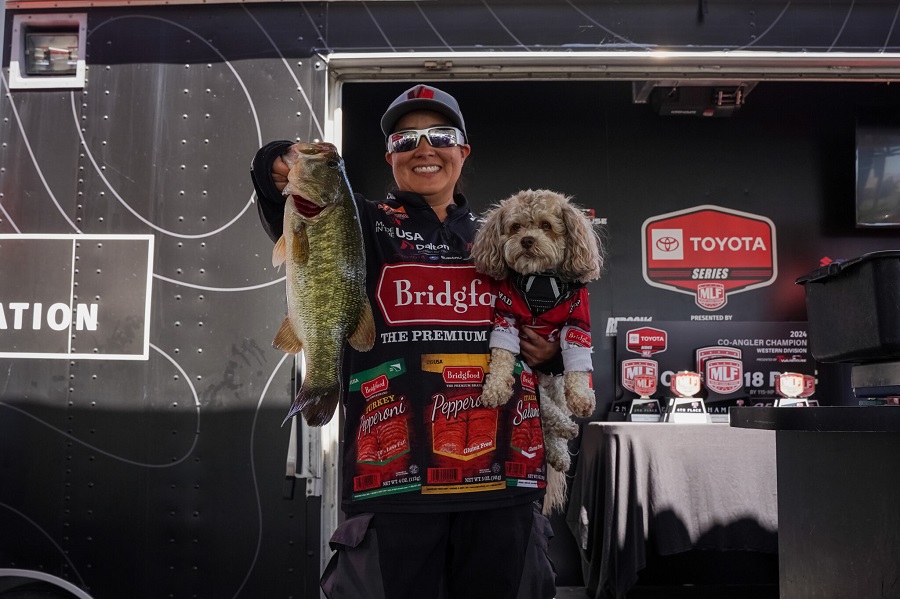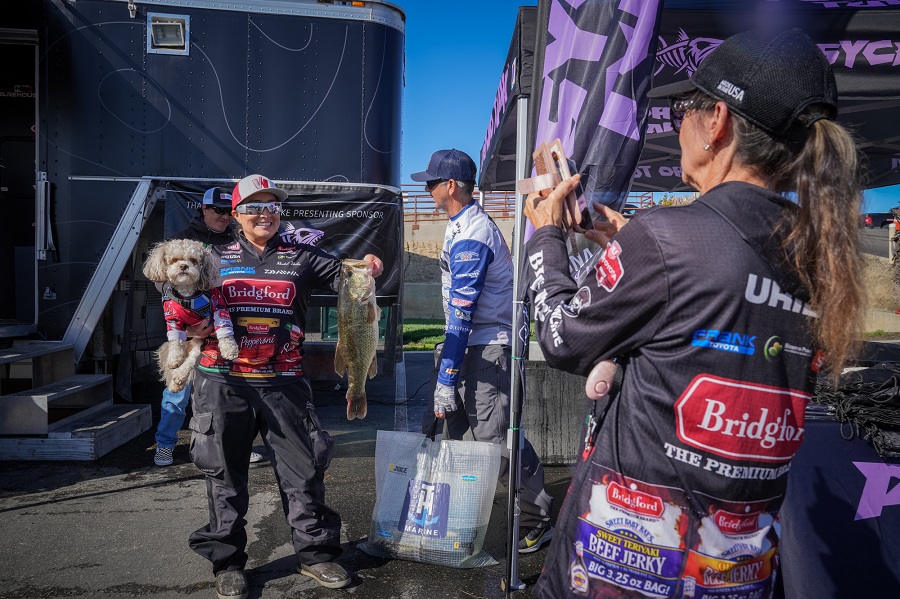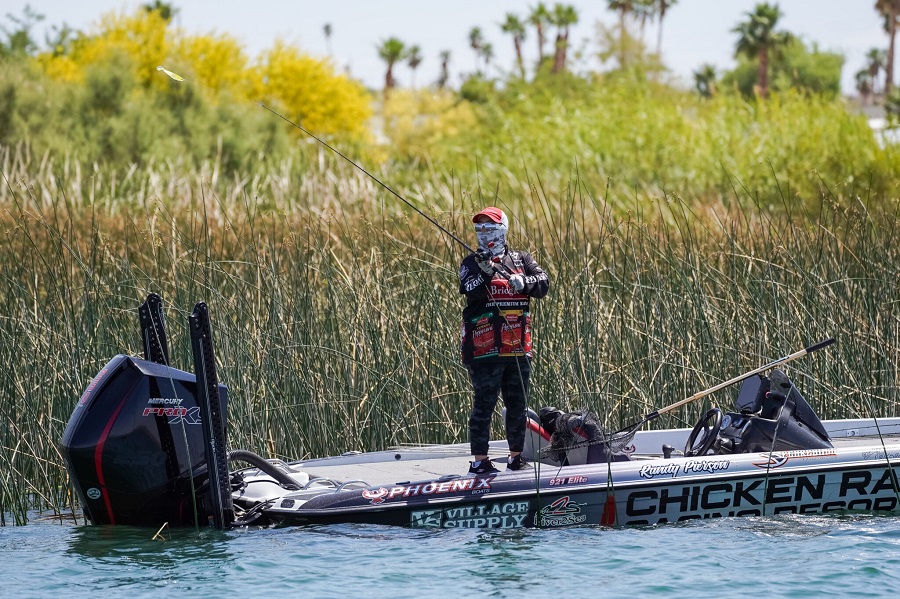 Fishing as a Co-Angler, also called an AAA or non-boater in some circuits, is a great way to get into tournament fishing without needing a boat. It's a fun experience and an excellent chance to learn the ropes while competing for prize money. Finding success consistently as an angler from the back seat takes a specific approach and ability to adapt to any water.
Fishing as a Co-Angler, also called an AAA or non-boater in some circuits, is a great way to get into tournament fishing without needing a boat. It's a fun experience and an excellent chance to learn the ropes while competing for prize money. Finding success consistently as an angler from the back seat takes a specific approach and ability to adapt to any water.
One of the most successful Co-Anglers in the west is Bridgford angler Rachel Uribe, who's scored seven Top 10 finishes with Major League Fishing alone, including a runner-up finish at the most recent Toyota Series on the California Delta. She shares her approach to fishing as a Co-Angler and gives tips to help you become a better angler from the back deck.
Work on Versatility

Fishing numerous different fisheries is one thing, but fishing with several anglers adds a new level of preparation. Each boater or pro you draw will likely have different styles and preferences. Some fish quickly, and some fish at a snail's pace, and as someone who's just along for the ride, you have to be ready for anything.
"I think success as a Co-Angler comes down to being versatile because you never know where the pro will take you and you still have to prepare for different conditions," said Uribe. "I fish in the off-season to work on new techniques so that when a situation comes up to use them, I'll have a lot more confidence with those baits."
Confidence alone is another key to fishing, whether from the front deck or the back.
"I like to fish my strengths and confidence baits," she said. "But, it's also different from the back of the boat. My true passion is throwing big swimbaits and topwaters, but that's not always effective from the back deck. In tournaments as a Co-Angler, I tend to fish slower baits like a drop-shot or Senko."
Uribe is also very observant of what her pro is doing and will not match the exact bait they are using. "I like to fish something different than what they are doing," she said. "If they are moving fast and using something like a spinnerbait, I may use a crankbait or ChatterBait. Something just a little different will give the fish a second chance to see it and you may get them to bite."
Uribe sticks with her favorites and only packs what she is truly comfortable with fishing. "I have one box with all of my drop-shot stuff and Roboworms and another with all of my Senkos and Carolina-Rig baits and terminal tackle," she said. "Then I have one with all of my reaction baits. My bag also has my different leader lines, and I use fluorocarbon as a top-shot to braid and can switch my leader size as needed."
For rods, she only carries a few and prefers to stick with four or five. "The most I will take is five and that's if I'm not too confident in the bite or not sure what will happen that day," she said. "I love to narrow it down to four so there are fewer tangles when riding in the boat, and when we arrive at a spot, I can get fishing right away and try to figure out the bite. I also like to bring rods that can do multiple things, like one that can fish jerkbaits and ChatterBaits and one that I can fish a drop-shot or a Senko with."
Working With Your Partner for the Day
Fishing as a Co-Angler is unique because you get to spend the day on the water with someone, often the first time you've ever met them. It's a unique dynamic where you work together and share the day's experience. Uribe communicates with them the day before they fish and also throughout the day.
"I like to contact them the night before to go over details of where to meet but also to get an idea of how we will be fishing," Uribe said. "I like to stand and fish, so I ask them to remove the back seat if they have one. It's their boat, but it's also important to be comfortable."
Uribe is also aware of what the boater is doing and fishing and stays observant. With the popularity of forward-facing sonar, many of her partners will be locked into the screen and she pays extra attention to what is happening around her.
"My dad and brother always taught me to watch and look around at the surroundings in case you see birds diving or a fish blowing up," she said. "Often, the boater will be so keyed into their screen that they miss some clues. I fished an event on the Delta where this was happening, made a long cast to where the school was, and stuck a big fish."
Lastly, Uribe believes that Co-Anglers should always keep a positive attitude. "If you stay positive and open-minded, you'll be better off," she said. If you're discouraged, your day is kind of over because it will be harder to execute casts, and if your mind is somewhere else, you'll miss bites."



 Advertising
Advertising